A Familiar Face
Mary Taylor had worked at the diner for years, becoming familiar with its rhythm and the regulars who came in every day. The small town diner had a family-like feel to it, and Mary was part of that, knowing all the little quirks of her customers. When a boy named Alex Parker started showing up daily, it didn’t seem too odd at first.


After all, he was just another regular. But the more Mary saw him, the more she began to notice small things that felt a bit off, especially as he came in alone every single day. He would order a handful of peanuts, eat a few, and then take the rest home. The staff didn't think much of it until one day, a stranger sitting at a nearby table pointed out the tape on the boy’s shoes, making Mary start to wonder if something more was going on.
A Routine Day
That day at the diner began like any other. The morning crowd was in for their usual cup of coffee and breakfast. Mary moved through the space, greeting her regular customers with the warmth and familiarity that had made her a fixture at Miller’s Grill for so long. Among them, Alex appeared.


He walked in, ordered his usual—a small portion of peanuts—and took his usual seat at a booth in the corner. Mary spotted him immediately but, as always, didn’t pay much attention. It was just part of the morning routine. But something in her gut told her today might be different, even though she couldn’t place why.
A Surprising Moment
The waitress who brought Alex his peanuts returned with the small, crumpled dollars Alex always handed over. He smiled politely, eating only a few peanuts before preparing to leave. But this time, as Alex was finishing up, something caught Mary’s attention.


At a nearby table, an older man was sitting, sipping his coffee, and staring at Alex. His gaze was intense, almost as if he was studying the boy with concern. Mary didn’t think much of it at first, but then she noticed the man was watching Alex so closely it made her uneasy.
A Concerned Stranger
“Excuse me, miss,” the man called to Mary as she walked past his table. His voice was low and deep, and there was something about it that made her stop in her tracks. She turned to him with a smile, but the warmth quickly faded when she saw the look in his eyes—cold blue eyes that seemed filled with concern, even a little suspicion.
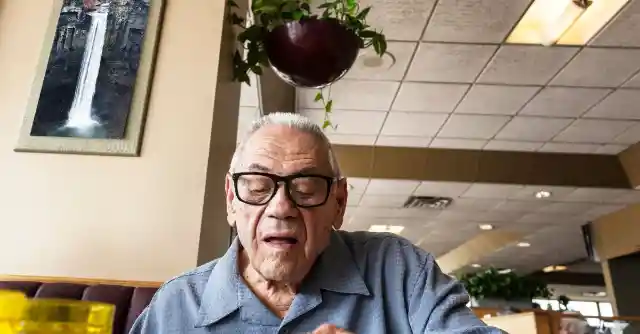
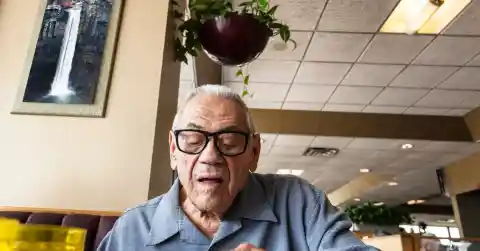
“Do you know that boy?” he asked, his gaze fixed on Alex. Mary was taken aback by the question but answered without hesitation, explaining that Alex came into the diner every day for his peanuts. “He’s here every day,” she added, her tone casual. But the man didn’t seem convinced. His eyes narrowed as he focused on the boy.
A Closer Look
The man’s attention shifted to Alex’s shoes, and he looked back at Mary with a serious expression. “Do you see his shoes?” he asked, pointing directly at the boy’s worn footwear. Mary looked over at Alex’s shoes—old, patched-up, and clearly worn out. She’d never really paid attention to them before.


Mary’s heart sank as she thought about it. The boy came in every day, always in those same shoes, to sit alone and quietly eat peanuts. “Something’s not right,” the man muttered, and Mary felt the weight of his words. Why did Alex always come here? Why didn’t he seem to have anyone else to turn to?
Mary’s Favorite Time
Mary loved the morning rush at the diner. There was something special about it—the smell of coffee brewing, the sizzling of bacon on the grill, and the soft hum of conversation filling the air. Even though Houston was a fast-paced city, the diner felt like a place where time could slow down for a while.


It was the part of the day when the diner felt alive, when everything clicked into place, and Mary could almost forget the weight of her responsibilities. As she moved between the tables, greeting regulars and serving their orders with a practiced ease, she realized that she wasn’t just a waitress at Miller’s Grill. She was a part of the diner, the steady beat of its daily rhythm.
Life Between Shifts
After her morning shift, Mary would always retreat to the corner booth by the window. There, she would sip on the cold coffee she hadn’t had time to finish during the busy morning rush and watch the cars go by. At 46, Mary’s life wasn’t what she had dreamed of when she was younger. She had once envisioned running a bakery with her sister, but those dreams had been put on hold when her mother became ill and financial pressures took over.


Now, Mary’s life had become one of routine—steady and predictable, yet not without its moments of quiet loneliness. But there was comfort in that predictability. The diner was a place where Mary could lose herself in the familiar rhythms, forgetting for a moment about the missed opportunities and the unfulfilled dreams.
A Southern Upbringing
Mary had grown up in the south end of Houston, in a neighborhood that had changed more times than she could count. Her father had worked at a refinery, and her mother had worked at a laundromat. Life wasn’t easy, but it was simple. Mary had learned early on that while they might not have had much, they always had enough to share.


That lesson had stuck with her throughout her life. It was why she always packed an extra sandwich in her bag every morning—just in case someone needed it more than she did. Growing up, it had never mattered how little they had. It was the people around her who made the difference.
The Diner’s Heartbeat
Miller’s Grill had been around for decades, a small brick building with a flickering neon sign that always seemed to need fixing. The owners, a husband and wife duo, treated their staff like family, and Mary had been a part of that family for nearly 15 years.
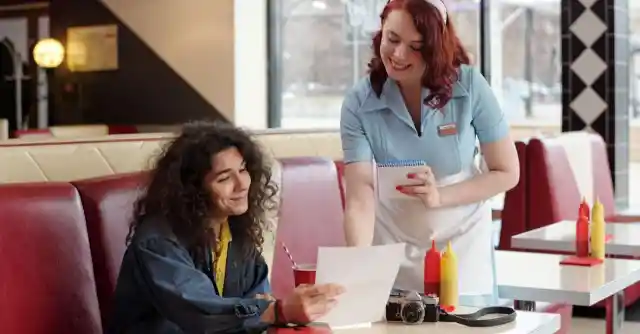
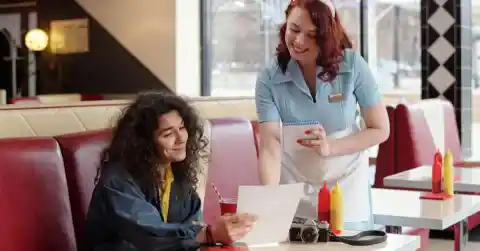
There was Joe, the cook, whose jokes were terrible but who had a heart of gold. Anita, the young hostess saving up for college. And Frank, the manager who barked orders but secretly bought everyone lunch on Fridays. Mary fit right in with this group. She was dependable, kind, and maybe just a little too curious about the stories of everyone who walked through the door.
The Regulars Who Shaped Her
Every diner had its regulars—those customers whose routines were as predictable as the sun rising in the morning. At Miller’s Grill, it was no different. There was Mr. Wallace, who came in every morning to read the Houston Chronicle from cover to cover.
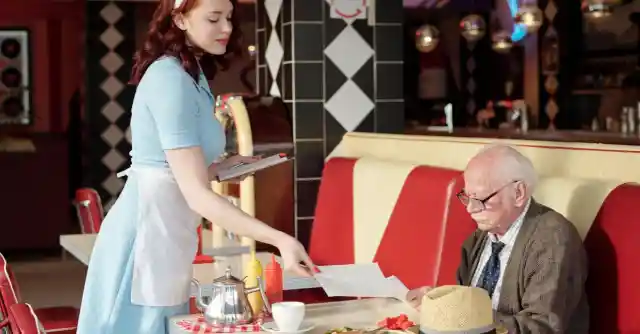
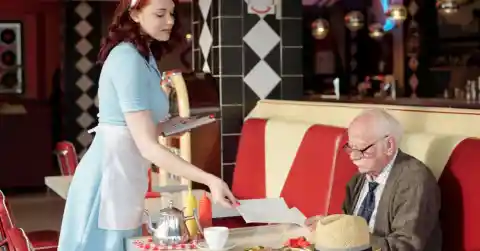
Mrs. Jenkins, who always ordered pecan pie for breakfast, even if it was 8 a.m. Mary knew all their stories, or so she thought. But she hadn’t yet realized that Alex, the quiet boy with his worn shoes and shy eyes, would soon become the one who would change everything. He would make her see the world differently, forcing her to confront things she had long ignored.
The Quiet Hours
In the slow afternoons, when the lunch crowd thinned, Mary liked to wipe down the counters and listen to the radio. Country music floated through the air, and sunlight poured in through the diner’s big front windows.
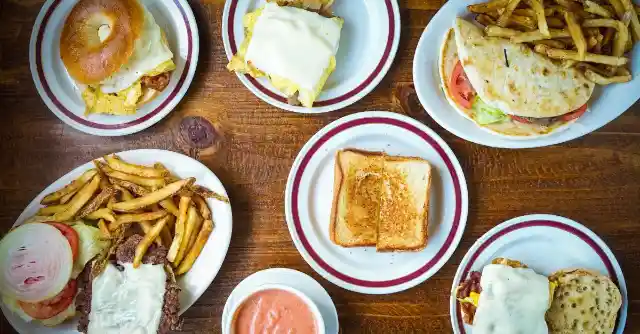
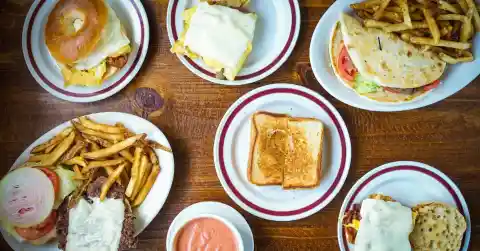
That’s when she often noticed the small things: a forgotten wallet, a dropped coin, or a lonely face in a corner booth. She’d learned that people came to diners not just for food, but for comfort. And even if she couldn’t fix their lives, she could at least make them feel seen.
A Kind Heart
Mary didn’t think of herself as special, but others might’ve said otherwise. When a stray cat wandered behind the diner, she fed it scraps until it trusted her enough to stay. When a young waitress broke down after a bad breakup, Mary covered her shift without being asked.
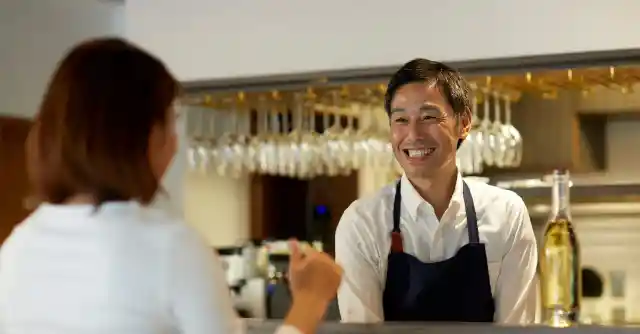

She believed in small acts of kindness, the kind that didn’t make headlines but quietly stitched people’s lives together. She never expected anything in return. So when a young boy began coming in every day for peanuts, she didn’t pry. But soon, that kindness she lived by would be tested in ways she couldn’t imagine.
The First Day
It was a Tuesday morning when Mary first noticed the boy. He couldn’t have been more than ten, maybe eleven, with messy old clothes and a few crumpled notes in his hand. He stood just inside the diner’s door, unsure of where to go.


When she smiled and asked if he wanted a table, he pointed to the counter instead and quietly said, “Just some peanuts, please.” It was an odd request, but she didn’t ask questions. She filled a small paper bowl and took his two dollars.
The Routine Begins
After that first visit, the boy started showing up again, not every few days, but every single day. It was always the same routine: a small “hello,” the same request for peanuts, and the same corner booth by the window. He never ordered anything else. Never asked for water. Just peanuts.
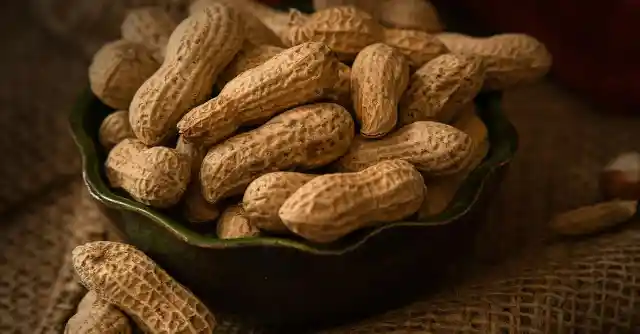
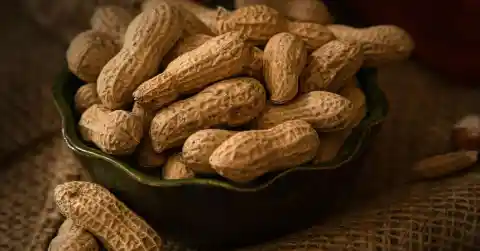
He’d eat a few, quietly, like he was afraid to take up too much space, then tuck the rest into a paper napkin and fold it carefully before slipping it into his pocket. Mary watched him sometimes as she wiped tables.
The Little Things
Weeks went by, and the boy still showed up every single day. The other waitresses barely noticed him anymore, but Mary did, though she didn't pay him too much attention.


However, once, she tried to ask his name. He hesitated before saying softly, “Alex.” Then he smiled; a small, polite smile that didn’t quite reach his eyes. He reminded her of her younger brother when they were kids: proud, quiet, and too grown-up for his age.
Right On Time
For the next three months, every day, Alex was there, right on time, his small hands clutching the same few bills. She started slipping him an extra handful of peanuts now and then, telling herself it was just “extra from the scoop.” He always looked at her like he was grateful.
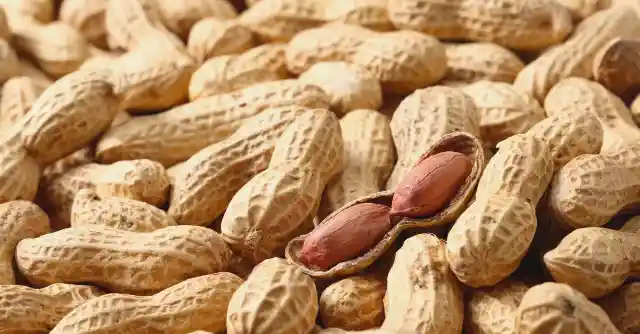

There were moments when she wanted to ask: Where are your parents? Why just peanuts? Are you eating enough? But she held back. She knew she had to keep her distance. But that all changed one day.
A Regular Morning
Friday mornings always ran like clockwork at Miller’s Grill. The smell of bacon, the clatter of plates, and the low hum of regulars filled the air. Mary worked her usual shift, greeting everyone with easy warmth. When Alex walked in, another waitress took his order while Mary served one of her tables.
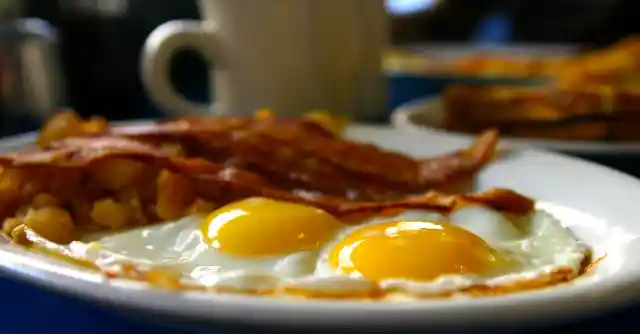
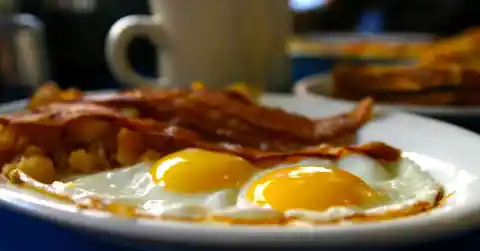
After the peanuts were handed to him, he sat in his corner booth, ate a few, and carefully wrapped the rest to take home. The other waitresses hardly noticed anymore, but today, someone new was watching.
The Stranger
Two booths away sat a man Mary didn’t recognize. He was tall, broad, with weathered hands and sharp blue eyes. He watched the boy quietly, sipping his coffee slowly. His name was Tom Bennett, though Mary didn’t know it yet.


Tom’s gaze drifted to the boy’s feet. The shoes were scuffed, the soles peeling, the sides bound by old gray tape. He frowned, realizing this wasn’t a child passing through; it was one trying to hold his world together with what little he had.
His Question
“Excuse me, miss,” the man said as Mary passed by with the coffee pot. His tone was polite but carried a certain weight. She stopped, smiling out of habit. “Need a refill?” Tom nodded toward the booth. “That boy, you know him?”
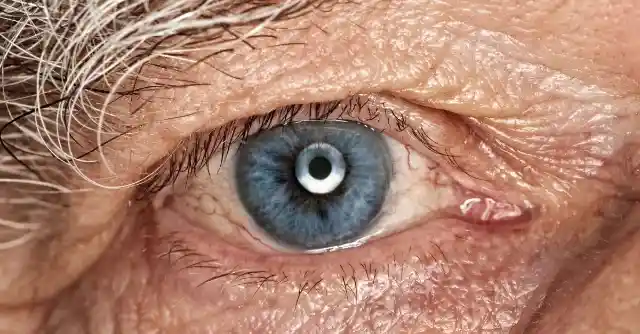
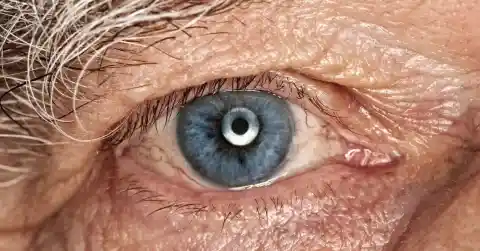
Mary glanced at Alex, who was counting change on the table. “Sure. Comes in every day. Just buys his peanuts.” Tom studied her, then said quietly, “You ever notice his shoes?” She followed his gaze and felt her stomach twist. She’d seen the tape before, but she’d never really thought about it.
The Realization
After that, Mary couldn’t focus. As she cleared tables and poured refills, her mind kept drifting to Alex. His quiet manners, his folded napkin, those taped-up shoes. It wasn’t just wear and tear; it was a sign of a family doing their best with almost nothing.


When he left, he gave her a small, polite smile. “See you tomorrow,” She watched him slip out the door into the sunlight, his shoes squeaking faintly with every step. For the first time, she felt something deeper than curiosity; a quiet, aching worry.
The Debate
That night, Mary lay awake, turning it over in her mind. She wanted to ask, to offer help, to slip a sandwich into a bag and tell him it was “extra.” But she hesitated. She didn't want to do anything risky.


By the time the morning rolled around, Mary knew the time had come. She had to ask the boy why he was there every day, what the peanuts were for, and if he was okay. She had started worrying about him.
The Conversation
The next morning, Alex came in right on time. Mary had promised herself she wouldn’t wait any longer. When he took his usual booth by the window, she grabbed the peanut bowl, took a deep breath, and walked over. “Morning, Alex,” she said gently. “You’ve been coming here a while now.” He looked up at her with those quiet, careful eyes. “Mind if I ask, why peanuts?” she asked softly.


Alex hesitated, his small hands fidgeting with the napkin. “They’re not for me,” he said finally. “They’re for my grandpa. He likes them. He used to come here, before he got sick.” His voice trembled as he went on. “He can’t really get out of bed much, and we don’t have money for medicine. But peanut, they make him smile.” He gave a shy shrug. “So I get them every day.”
Better Times
Mary’s heart ached as she listened. “You buy them with your own money?” she asked gently. Alex nodded.


“I mow lawns on weekends for Mr. Harper down the street. He gives me a few dollars. Grandpa tells me to save it, but I’d rather use it for him. He says peanuts remind him of better times.” He smiled faintly, proud and sad all at once.
A Sacrifice
Mary sat across from him, folding her hands on the table. “You’re a good boy, Alex,” she said softly. “Your grandpa’s lucky to have you.” He looked down, embarrassed by the praise.


“We just take care of each other,” he murmured. Mary’s eyes drifted to his taped-up shoes, and the sight hit her differently now. They weren’t a symbol of neglect; they were proof of sacrifice.
A Little Kindness
Mary hesitated for a moment before leaning in. “How about we do something together?” she said. “After your peanuts, what if we stop by the pharmacy down the street? Maybe we can find something to help your grandpa feel better.” Alex’s head snapped up, eyes wide.


“But I don’t have enough money,” he said quickly. She smiled and shook her head. “Don’t you worry about that. You’ve done plenty already.” For a second, Alex didn’t speak. Then his lips curved into a small, hopeful smile that made Mary’s chest tighten. “Okay,” he whispered.